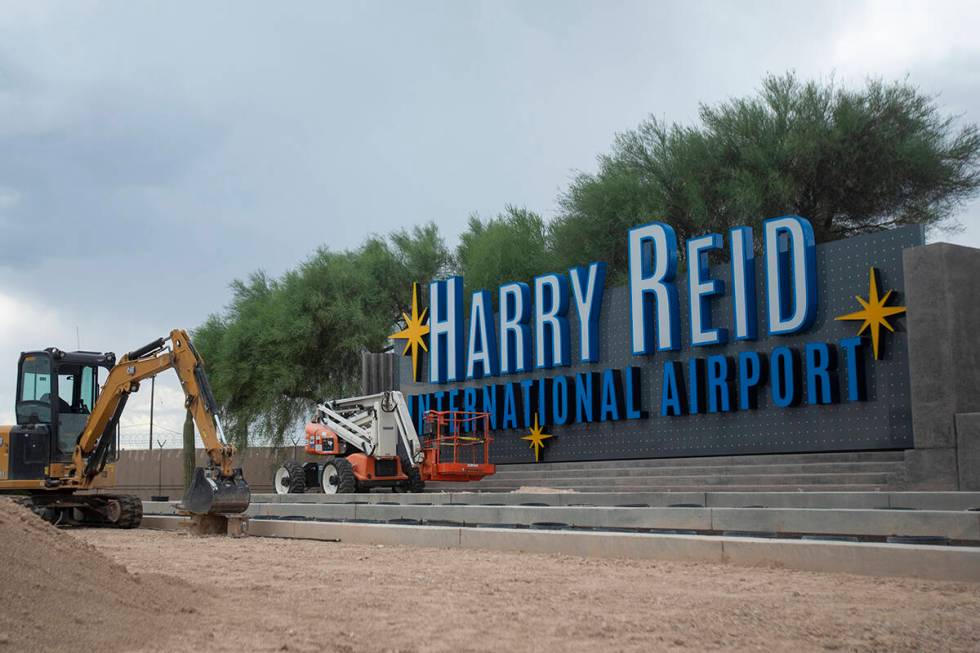6 ways a government shutdown would — or wouldn’t — affect Nevada

The federal government seems to have narrowly avoided a partial shutdown, with the House reaching an agreement Friday afternoon ahead of a midnight deadline to fund the government.
After many back-and-forth debates, the House voted 366 to 34 to approve a short-term spending bill to fund the government until March 14. The Senate is expected to aapprove the bill, perhaps Friday night, before sending it to the president to sign.
The vote came after days of chaos following President-elect Donald Trump and his adviser Elon Musk denigrated the earlier bipartisan version of the bill, arguing it contained unnecessary spending.
The House rejected President-elect Donald Trump’s proposal to fund operations and suspend the debt ceiling, and House Republicans went back to the drawing board Friday morning to put together a plan to avoid a partial government shutdown.
Just last year, the House was faced with a similar crisis with a potential government shutdown. This time, however, a government shutdown would have come ahead of Christmas, potentially impacting air travel as Americans fly to their families over the holidays.
Here is what would be affected in the event of a partial government shutdown.
1. Holiday travel may slow as employees continue working without pay.
Federal employees considered essential, such as law enforcement, air traffic controllers and TSA would continue to work, but they wouldn’t get paid during the shutdown. They’d receive their pay for the hours they worked after the shutdown concludes.
While airports will obviously stay open, travelers can expect some delays at Harry Reid International Airport if the government shuts down. During previous shutdowns, TSA officers called in sick, creating a workforce shortage in major airports, Rep. Steven Horsford, D-Nev., previously told the Las Vegas Review-Journal.
A full shutdown, similar to ones in 2013 and 2018, would likely result in the furlough of approximately 850,000 out of 2.1 million non-postal federal employees, according to the Committee for a Responsible Federal Budget.
It could also cost the U.S. travel economy $1 billion per week, affecting millions of American travelers, businesses and federal workers, according to the U.S. Travel Association. Previous holiday shutdowns cost the U.S. economy $11 billion.
2. National parks would likely close.
National parks would likely not be open in the event of a shutdown. Las Vegans and tourists alike would not be able to visit Red Rock Canyon National Conservation Area.
In a 2013 shutdown, the National Park Service turned away millions of visitors to more than 400 national parks, monuments and other sites. In the 2018-2019 shutdown, many parks remained open, but visitor services were not provided and trash build-up was reported at sites, according to the Committee for a Responsible Federal Budget.
3. Postal Service would stay open.
The Postal Service is part of an independent agency, so mail service would continue to operate.
4. Social Security benefits would continue.
Social Security is also part of a different system, so workers would continue to work and Social Security checks would continue to be mailed out, according to the Committee for a Responsible Federal Budget.
5. Veteran health care would not be affected.
Veterans Affairs medical centers, outpatient clinics and vet centers would still be open, so veterans would still be able to receive health care, according to the U.S. Department of Veterans Affairs.
VA benefits regional offices would be closed, and the VA would not be able to provide career counseling or transition assistance program activities.
6. Military personnel could likely see impacts.
Nellis Air Force Base and Creech Air Force Base could also be affected. Active-duty service members would continue to work, but civilian personnel would be furloughed.
Contact Jessica Hill at jehill@reviewjournal.com. Follow @jess_hillyeah on X.